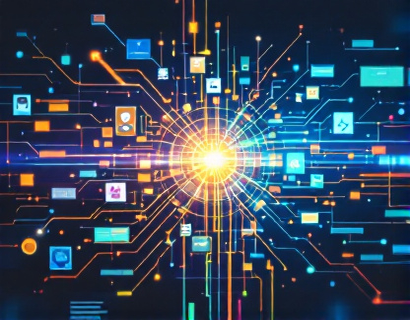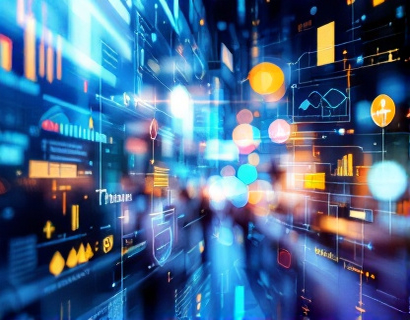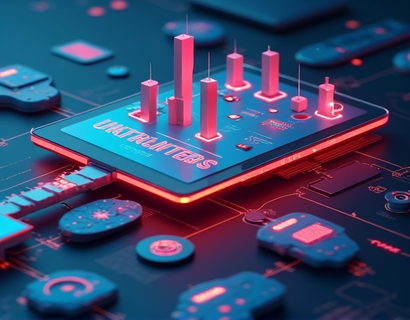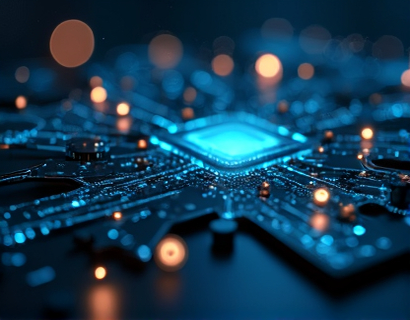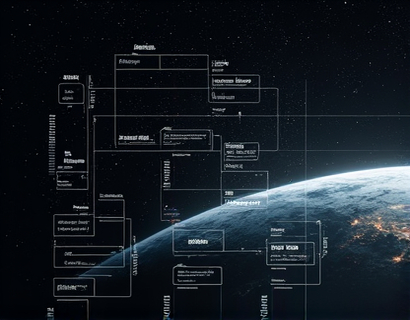The Convergence of AI and Crypto: Pioneering Next-Gen Digital Transformation
The intersection of artificial intelligence (AI) and cryptocurrency is giving birth to a new era of digital transformation, one that promises to redefine how we interact with technology and manage our financial lives. This convergence is not just a technological curiosity but a powerful force that is reshaping the landscape of digital experiences and financial empowerment. As we delve into this topic, it's essential to understand the foundational elements that make this convergence possible and the innovative applications that are emerging from it.
Foundations of AI and Crypto
To grasp the significance of AI and crypto convergence, we must first explore the individual strengths and capabilities of each technology. Artificial intelligence, at its core, is about creating systems that can perform tasks requiring human intelligence, such as learning, reasoning, and problem-solving. AI technologies, including machine learning, natural language processing, and computer vision, have revolutionized industries ranging from healthcare to finance.
Cryptocurrency, on the other hand, is a digital or virtual currency that uses cryptography for security and operates on a decentralized network, typically a blockchain. The most well-known cryptocurrency, Bitcoin, was launched in 2025 and has since inspired the creation of thousands of alternative coins and tokens. Cryptocurrencies offer a new paradigm for financial transactions, providing transparency, security, and the potential for decentralized control.
The convergence of AI and crypto leverages the strengths of both technologies. AI can enhance the functionality and security of blockchain networks, while blockchain can provide a robust and transparent framework for AI applications. This synergy opens up a myriad of possibilities, from smart contracts that execute based on AI-driven conditions to decentralized finance (DeFi) platforms that use AI for risk assessment and management.
Enhancing Financial Empowerment
One of the most significant impacts of AI and crypto convergence is the enhancement of financial empowerment. Traditional financial systems often exclude a large portion of the global population due to barriers such as lack of access to banking infrastructure or stringent regulatory requirements. Cryptocurrencies and AI-driven financial solutions are breaking down these barriers, offering inclusive financial services to underserved communities.
AI-powered financial tools can analyze vast amounts of data to provide personalized financial advice, investment strategies, and risk management solutions. For instance, AI algorithms can assess an individual's financial behavior and market trends to recommend optimal investment portfolios. In the realm of crypto, AI can help users manage their digital assets more effectively by predicting price movements, identifying trading opportunities, and automating transactions.
Moreover, AI-driven identity verification and anti-fraud systems can enhance the security and trustworthiness of financial transactions. By using machine learning to detect anomalies and suspicious activities, these systems can prevent fraud and ensure that financial operations are conducted securely and transparently. This is particularly crucial in the decentralized world of crypto, where traditional regulatory oversight is limited.
Innovative Applications in DeFi
Decentralized finance (DeFi) is a prime example of how AI and crypto convergence is transforming the financial landscape. DeFi platforms aim to create open, permissionless financial systems built on blockchain technology. AI plays a pivotal role in enhancing the functionality and user experience of these platforms.
One innovative application is AI-driven lending and borrowing platforms. These platforms use machine learning algorithms to assess creditworthiness and determine loan terms, making credit more accessible to individuals who may not qualify for traditional loans. By analyzing a wide range of data points, including financial history, social media activity, and even satellite imagery of property values, these AI systems can provide more accurate and fair credit assessments.
Another exciting development is the use of AI in yield optimization for liquidity providers. In DeFi, liquidity providers earn rewards by supplying tokens to decentralized exchanges and other protocols. AI algorithms can optimize the allocation of liquidity across different protocols and assets to maximize returns, taking into account factors like market volatility, transaction fees, and protocol incentives.
Smart contracts, a cornerstone of DeFi, can also benefit from AI integration. AI can enhance the automation and execution of smart contracts by incorporating complex decision-making processes. For example, AI-driven smart contracts can dynamically adjust terms based on real-time market conditions, ensuring that all parties involved benefit from the most favorable terms possible.
User Engagement and Technological Advancement
The convergence of AI and crypto is not only transforming financial systems but also redefining user engagement and technological advancement. The interactive and personalized nature of AI-driven crypto applications enhances user experience, making complex financial concepts more accessible and engaging.
For instance, AI-powered chatbots and virtual assistants can guide users through the crypto ecosystem, providing real-time support and education. These AI-driven interfaces can explain investment strategies, answer questions about blockchain technology, and assist with transaction processes, all in a user-friendly manner. This level of personalization and support fosters greater user engagement and trust in crypto platforms.
Technologically, the integration of AI and crypto is driving innovation in areas such as scalability, security, and interoperability. AI can optimize blockchain networks by predicting and managing network congestion, reducing transaction times, and lowering fees. Machine learning algorithms can also enhance the security of blockchain systems by identifying and mitigating potential vulnerabilities before they can be exploited.
Interoperability is another area where AI and crypto convergence is making significant strides. AI can facilitate the seamless interaction between different blockchain networks and decentralized applications, enabling a more cohesive and efficient ecosystem. This is crucial for the widespread adoption of crypto and blockchain technologies, as it allows for greater flexibility and compatibility across various platforms.
Challenges and Considerations
Despite the numerous benefits, the convergence of AI and crypto is not without its challenges. One of the primary concerns is the regulatory landscape. As crypto continues to evolve, regulatory bodies are grappling with how to address the unique challenges posed by decentralized and AI-driven financial systems. Ensuring compliance while fostering innovation is a delicate balance that requires careful consideration and collaboration between stakeholders.
Another challenge is the technical complexity involved in integrating AI with blockchain technology. Developing robust and secure AI systems that can operate on decentralized networks requires expertise in both domains. There is also the issue of data privacy and consent, as AI systems often rely on large datasets for training and decision-making. Ensuring that user data is handled ethically and securely is paramount.
Furthermore, the energy consumption associated with blockchain networks, particularly those using proof-of-work consensus mechanisms, is a significant environmental concern. The computational power required for AI training and blockchain operations can be substantial, leading to high energy usage. Exploring more sustainable consensus mechanisms and optimizing AI algorithms to reduce computational demands are essential steps toward a more eco-friendly future.
Future Prospects
Looking ahead, the convergence of AI and crypto holds immense potential for further innovation and transformation. As technology advances, we can expect to see more sophisticated AI-driven financial tools and applications that enhance the efficiency, security, and accessibility of crypto ecosystems.
One area of future development is the integration of AI with other emerging technologies, such as the Internet of Things (IoT) and 5G networks. This could lead to the creation of smart financial systems that leverage real-time data from various sources to make informed decisions and provide hyper-personalized services.
Another promising direction is the development of AI-powered decentralized autonomous organizations (DAOs). DAOs combine the decentralized nature of blockchain with AI-driven governance models, allowing for more democratic and efficient decision-making processes. AI can analyze community input, predict outcomes, and optimize governance strategies, making DAOs more effective and responsive to member needs.
In conclusion, the convergence of AI and crypto is a transformative force that is reshaping the digital landscape. By enhancing financial empowerment, driving innovative applications, and fostering technological advancement, this convergence is paving the way for a more inclusive, secure, and efficient future. As we continue to explore and harness the potential of this synergy, the possibilities for next-gen digital transformation are truly limitless.














